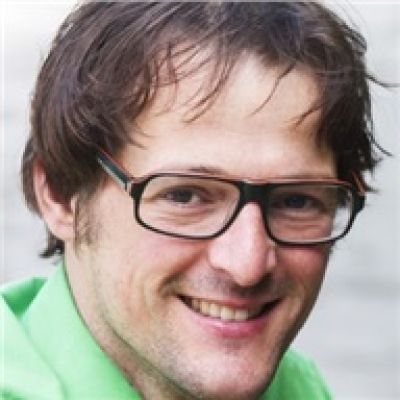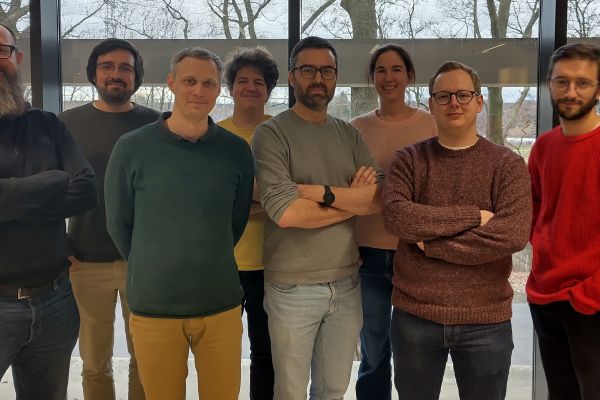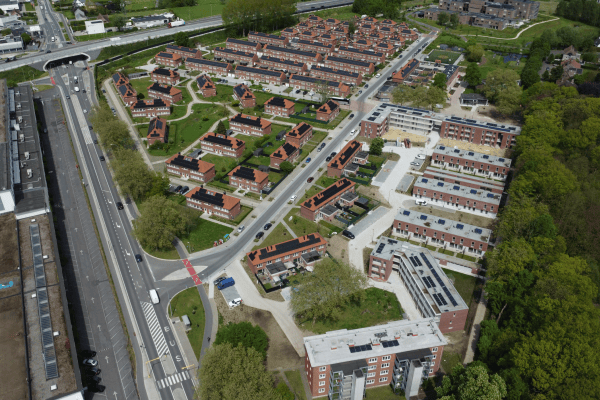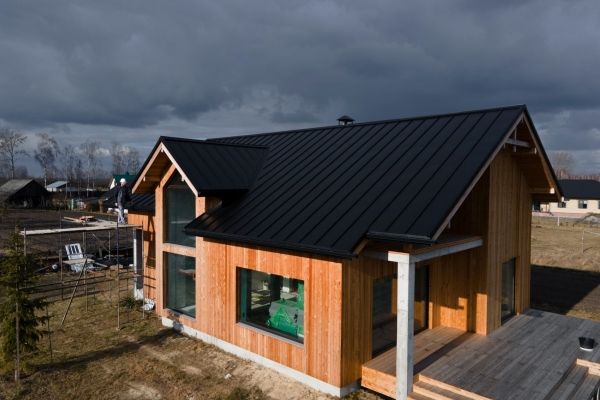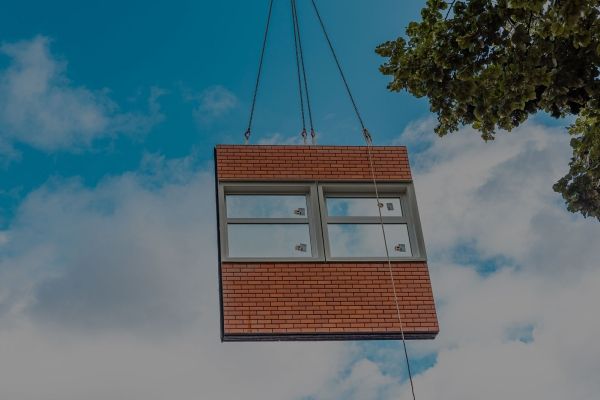Circular construction lands in Rwanda
A first for VITO/EnergyVille: for the first time it is carrying out a project on circular construction outside Europe. It is no coincidence that this is happening in Rwanda, which has had a strong interest in circular economy for years. In a project financed by Enabel, the Belgian federal development agency, ten local producers of building materials - 'Made in Rwanda' - are learning about circularity in practice.
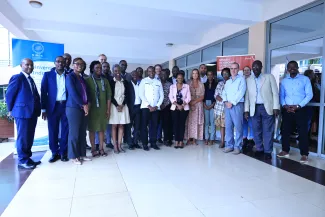
Countries that adopt technological developments only later have the advantage of being able to 'leapfrog': instead of going through the same learning curve as other countries, they can immediately adopt the latest innovations. For example, developing countries skipped the massive installation of telephone cables and went straight for mobile communications. Central African country Rwanda now wants to do something similar with its construction sector and economy. While these are still developing - there is no long material- and energy-intensive construction history like ours - the Rwandan government wants to graft them onto circular principles sooner rather than later. The fact that Rwanda is serious about circularity is evidenced by a five-year national plan the country launched in 2022 to strengthen its construction sector. In it, circular construction gets a lot of attention.
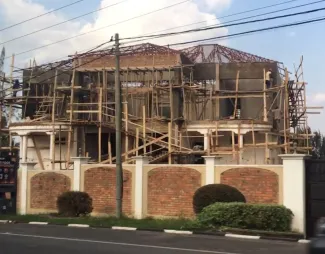
Request from Rwanda
A VITO/EnergyVille pilot project on circularity in the construction sector is currently underway in Rwanda. It started in summer 2022 and is part of a wider initiative by Belgian development agency Enabel. As Enabel has been working with VITO for some time, and VITO/EnergyVille has a lot of experience in projects around circular economy and specifically around circular construction, a cooperation was obvious. For the implementation of the pilot project, VITO/EnergyVille also took on the NGO Entrepreneurs for Entrepreneurs (OVO), they work around sustainable entrepreneurship in Africa. 'But to be clear, the request for this circular economy project came from Rwanda itself,' assures Michiel Ritzen of VITO/EnergyVille. 'That is no surprise, by the way: we have noticed a strong interest in circularity from the Rwandan government for years.' For VITO/EnergyVille it is the first project in this field outside Europe. You could call this our first truly international project on circularity within the construction sector'.
The construction sector is obviously very broad, so what do you focus on in a pilot project where time and resources are limited? 'In consultation with the stakeholders from Rwanda (including the Ministries of Economy and Environment and the National Industrial Research and Development Agency), the choice fell on the producers of building materials, i.e. at the source,' says Carolin Spirinckx of VITO/EnergyVille. 'We are looking at how circularity can be integrated into the entire value chain of their products.' One way to do that is by establishing guidelines to promote circularity. If these prove effective in the pilot project, they can be incorporated into recommendations for new policies around integrating circularity into the construction sector in Rwanda.
To move towards the development of effective guidelines, the pilot project also analyses the situation 'on the ground'. This includes, for instance, evaluating current policies and identifying the actors involved in a circular Rwandan construction economy, as well as the construction materials and products used in it.
But the most important part of the project is an incubation and coaching programme involving 10 private companies. They are all local producers of building materials, labelled 'Made in Rwanda'. During the trajectory, the firms apply the circularity recommendations to their operations. They then look at how they differ from the business-as-usual scenario. This is done through commercial scans, circularity scans and life-cycle analyses. Spirinckx: 'The ten participating companies are thus closely monitored, and after the process they each receive an individual final report and an action plan for the near future. This allows them to make the transition to circular business further.' There was no shortage of interested companies. The project leaders had to choose from no fewer than 75 firms that all met the participation criteria. The coaching process started in March 2023 and continues into the autumn with a pitch session for the companies for possible investments. The pilot project will end in December 2023.
More future-oriented design
The VITO/EnergyVille experts involved already travelled to Kigali several times; in September 2022 for the kick-off of the pilot project, in December 2022 to attend the first meeting with the selected companies and to chair a session at the World Circular Economy Forum, and again in March 2023 for company visits and three days of boost camps with the companies. These meetings required constant simultaneous translation, from English to Kinyarwanda, Rwanda's official language, and vice versa. 'Many Rwandans only speak Kinyarwanda, so it was a bit of a struggle,' Ritzen says. 'But partly thanks to an inspired interpreter and the voluntary efforts of students at the University of Kigali, it all went smoothly.'
How will construction firms perceive their participation in the pilot project? 'Until now, they thought purely commercially,' Spirinckx continues. 'Circularity is largely new to them. The project starts from the situation as it is, then maps out a potential evolution towards circularity. The selected companies are coached to integrate circular approaches into their operations. Circular business plans can help. When drawing up the circular business plans and how they can be evaluated, we from VITO/EnergyVille can then do our bit.'
One of the participating firms is RCGF Rwanda Ltd, based in Kigali. The company makes prefabricated garden furniture, mostly using locally quarried natural stone. 'We were very keen to participate in this circular economy project,' says managing director Eric Nshimiyimana. 'This will allow us to further expand our network and we can also get more access to finance. This will lead to an improvement in the quality of our products and our production capacity.'
Circular business requires a view that covers the entire value chain, also with a view to the end-of-life cycle of materials and products. Spirinckx: 'In this area, a change in mentality is still needed in Rwanda as well. There is no real long-term thinking: buildings are demolished after 10 or 20 years, with no consideration for the "end of life" of the building in the initial design. Being more forward-looking in design and construction is definitely something we want to transfer.'
According to Ritzen, this mentality is partly the result of a more western design of the construction sector that has gained a foothold in Rwanda in recent decades. 'Imports of building materials such as cement and concrete brick have risen sharply, while there are actually local alternatives available for these, which would benefit the Rwandan economy as well as the environment and climate. That too is circularity. The Rwandan government realises this. Although, at the same time, it must guard against any negative consequences of excessive self-sufficiency in building materials, such as deforestation.'
Potential in other countries
For project financier Enabel, the project is about much more than circularity alone. 'With this, we want to contribute to Rwanda's urbanisation ambitions and the creation of jobs in a green and circular economy,' says Enabel's Dirk Deprez. 'Applying circular principles to buildings means looking at the full life cycle of a building, including its design, construction and deconstruction and the materials used. But also that you consider the building as part of a larger physical and political space. Such a vision brings opportunities for both economic development and job creation, while introducing innovation.'
If Rwanda wants to leapfrog to a more circular construction sector, the revaluation of local raw materials and materials can certainly contribute. For example, the country has banned 'single use plastics', such as plastic bags. Rather, Rwandans use plant-based materials such as banana leaves and paper as packaging. 'Building a circular construction economy will therefore also require the establishment of an end-of-life cycle sector, with, for example, demolition companies enabling the reuse of raw materials and materials. So there is still a lot of work ahead in this area,' Ritzen said.
Spirinckx, in conclusion: 'This pilot project, which we are carrying out together with Entrepreneurs for Entrepreneurs on behalf of Enabel, is a great example of how we can translate our vision and mission on circularity and sustainability into practice, and thereby strengthen sustainable entrepreneurship within the construction sector in Rwanda. On top of that, this approach also offers potential to apply in other (African) countries.'




